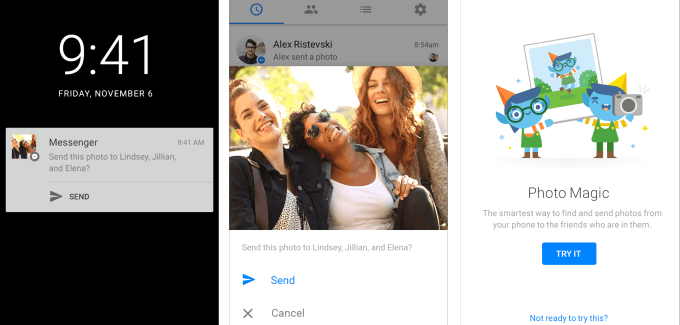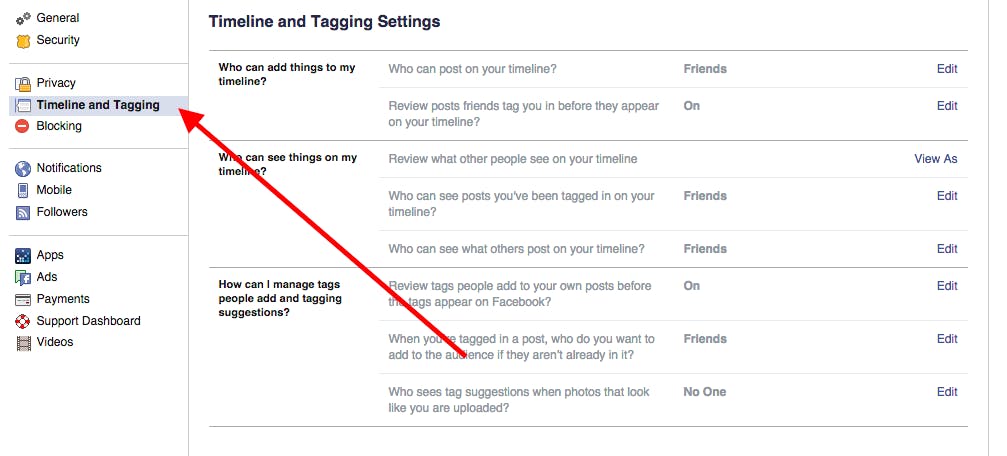Facebook wants its facial recognition technology to be more deeply integrated into your smartphone.
The company is rolling out a Messenger feature called Photo Magic that scans your phone’s camera roll and identifies photos of you and your friends, then asks if you would like to send the photos to those friends via Messenger. It’s now available in Australia for Android and will be coming to iOS in a few days, with more countries in the future, TechCrunch reports.
Facebook says it’s solving the very complicated and stressful problem (please detect my sarcasm) of forgetting or just not having the time to send your friends photos of them. Because Facebook automatically recognizes faces and connects them to a Facebook account, it will enable you to send the photo to your friends in the picture (if they haven’t opted-out of facial recognition). And if it’s a bunch of you in a group, it will prompt a group message.
It’s not the first time Facebook’s slithered its invasive facial recognition technology into the camera roll. You might remember Moments, the standalone app that used the same tech to recognize friends and share photos privately within the app. This time, though, Photo Magic is baked in to Messenger, the app with 700 million monthly users.
You will have to opt-in to Photo Magic and give Messenger access to your photos.
When Facebook rolled out Moments, I provided you with this handy guide to turn off Facebook’s facial recognition so you don’t appear in tag suggestions, apps like Moments, and features like Photo Magic (and whatever else Facebook has in store for the future of facial recognition.)
So I’m going to remind you again that to stop Facebook’s software from recognizing your face by visiting the “Timeline and Tagging” menu under “Settings.”
I’m also going to suggest that if your friends only send you photos when prompted to by a piece of technology that recognizes your face, you should find better friends.
Illustration by Max Fleishman




